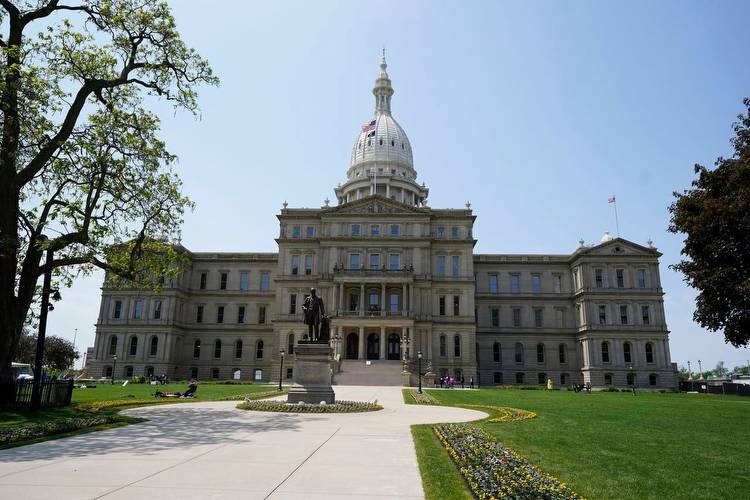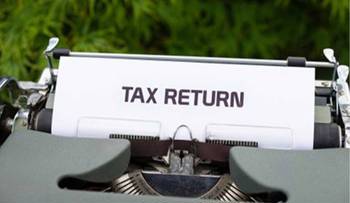A Comprehensive Guide to Gambling Taxes in Michigan

When you ask somebody about hubs of casino gambling in the United States, it’s likely that Las Vegas, Nevada or Atlantic City, New Jersey, will be the most common answer. After all, those locations have been staples of American gambling and sports betting
In recent years, however, gambling legalization has begun sweeping the nation, with more and more states allowing online and land-based casinos to operate within their borders.
One of the most significant new markets for gambling has been Michigan. Traditionally known for having beautiful landscapes, vibrant cities, and good college football, the Great Lakes State has also grown into a vital casino market.
As a result of the explosion in popularity, the taxes that Michigan generates from its casinos have gone a long way to fund various public programs and initiatives.
You may be asking yourself, why is this important? Well, if yougamble in Michigan or any state in the USA, you should take the time to understand what gambling taxes you might be responsible for.
Even within Michigan, there are different regulations based on what type of gambling you are doing. For example, playing roulette or craps at a casino subjects you to a specific tax structure, while online casinos and lottery games have different rules. These rules also change over time, so keeping up with the current regulations is a clutch.
With rules that can affect your money, knowing what taxes you are on the hook for is paramount.
The following introduction and breakdown of Michigan’s gambling taxes will offer essential information to help navigate your tax requirements and ensure your experience playing in Michigan is positive.
When discussing taxes in the context of Michigan gambling, “winning taxes” refers to the taxes you must pay on any winnings when you wager. You may not know this, but when you win money using certain specific forms of gambling in Michigan, you are subject to state and federal income taxes on winnings.
The amount you owe largely depends on how much you win, but we will further dive into the details in this article.
Another important tidbit is that you are responsible for reporting your gambling income when filing your state and federal tax returns.
Because of this, you must keep a record of wins and losses to ensure you comply with regulations and report your activity accurately.
Suppose you itemize deductions on your federal tax return (meaning you did not opt for the standard deduction) and claim deductions for losses incurred from gambling. In that case, you might qualify to deduct those gambling losses. To do so, you must include the U.S. Form 1040 Schedule 1 and U.S. Form 1040 Schedule A when filing your taxes.
For residents, disclose the wagering losses you claimed in the U.S. Form 1040 Schedule A.
For non-residents, also report your wagering losses on U.S. Form 1040 Schedule A. Please note that losses should not exceed the total wagering gains obtained from wagers made at or throughcasinos or race tracks in Michigan.
Michigan imposes taxes on various gambling winnings, but the specific rates and regulations differ depending on where and what you are gambling on. Note the Michigan Income Tax Act has no provision to subtract your casino losses on individual income tax returns.
The breakdown of each genre of gambling and its tax rates is as follows:
In Michigan, land-based casino gambling winnings are subject to state taxes. The state imposes a flat income tax rate of 4.25% on all types of income, including gambling winnings. This rate is applied to the net gambling winnings, which refers to the total amount won minus any documented losses incurred during the tax year.
Whether from slot machines, table games, or other casino activities, land-based casino gambling winnings in Michigan are subject to this 4.25% state income tax. Individuals must maintain accurate records of wins and losses for tax reporting purposes.
Casinos must issue a W-2G form to individuals who win specific amounts, usually $600 or more and at least 300 times the wager amount, indicating the winnings and any taxes withheld.
Federal income tax rates apply to gambling winnings. The casino typically withholds 24% of federal income taxes from the winnings, but the actual tax liability might be higher or lower based on the individual’s overall income and tax bracket. This withheld amount serves as an advance payment towards the federal tax obligation. National tax rates for gambling winnings align with the individual income tax rates, which range from 10% to 37% based on the total income.
In Michigan, online casino gambling winnings are subject to state taxes. The state income tax rate for Michigan is 4.25%. Therefore, any winnings from online casino gambling activities, such as slots, poker, or other games, are generally subject to this 4.25% state income tax.
It’s important to note that the tax liability applies to any net gambling winnings, meaning it’s based on the total amount won minus any losses incurred during the tax year. As with gambling winnings, individuals should keep accurate records of their wins and losses for tax reporting purposes. Consulting with a tax professional or accountant can provide specific guidance on reporting gambling income for Michigan state tax purposes.
One thing to remember when playing casino games online in Michigan is that even if you win using funds won via a welcome bonus or other promotions, you are still required to pay taxes. For example, you must pay tax if you hit a massive jackpot using $10 from a no-deposit bonus.
Regarding federal taxes on online casino gambling winnings in Michigan, it’s important to understand that gambling winnings, including those from online casinos, are considered taxable income by the Internal Revenue Service (IRS) in the United States.
The IRS treats gambling income as taxable under the federal tax code. Any net gambling winnings are subject to federal income tax. Casinos, including online casinos, must issue a W-2G form to individuals who win certain amounts, typically $600 or more and at least 300 times the wager amount, indicating the winnings and any taxes withheld.
Federal income tax rates can vary depending on your total income and tax bracket.
The tax rates for gambling winnings are the same as the individual income tax rates, ranging from 10% to 37% based on your total income. The casino typically withholds 24% of federal income taxes from the winnings, but the actual tax liability might be higher or lower based on the individual’s overall income and deductions.
For prizes exceeding $5,000, the Lottery must retain 24% for federal income tax and 4.25% for state income tax. The withheld amounts might only cover part of your tax obligations.
We strongly advise seeking guidance from an accountant, tax attorney, or financial planner to accurately assess your total tax responsibilities.
Lottery prizes are categorized as income, requiring issuing a W-2G form for your income tax filings. The prize amount and the tax withholdings are reported to the Internal Revenue Service and the Michigan Department of Treasury.
In cases of prizes equal to or exceeding $1,000, state law mandates the Lottery to cross-reference with the Department of Treasury to determine if the winner has outstanding dues such as back taxes, child support (Friend of the Court), overdue fees to the Secretary of State, legal judgments, or any other debts entrusted to the state of Michigan for collection.
Should a winner have outstanding debts, the state must withhold the amount owed, potentially up to the total prize amount.
Taxes affect our daily lives, but we don’t often take the time to consider why we pay them and what they do for us. Let’s change that and break down the purpose of taxing gambling establishments in Michigan.
The main reason that any entity collects taxes is to generate revenue, and Michigan is no different. The taxes collected from the state’s online and offline casinos, racetracks, and other gambling venues help the state’s general fund. The money taken into this fund goes to support public services and initiatives regarding education, infrastructure, and healthcare in Michigan.
Below, we break down the taxation structure into three levels: individual, brand, and state.
- Individual tax obligations: Michigan residents who earn income from online casino gambling are subject to state and federal taxes.
- State income tax: Michigan imposes a flat income tax rate of 4.25% on all types of income, including online casino gambling winnings.
- Federal income tax: The IRS treats gambling winnings as taxable income. Federal income tax rates can vary based on the individual’s income and tax bracket. The casino typically withholds 24% for federal income taxes, but the actual tax liability might be higher or lower based on the individual’s total income and tax bracket. It’s important to report all gambling winnings on the federal income tax return.
- Taxation for brands: On top of what individual taxes take in, the casinos in Michigan contribute 8.1% of their Adjusted Gross Receipts (AGR) directly to the School Aid Fund for K-12 classroom education statewide. The AGR of a casino is the gross receipts minus winnings paid to players. According to the AGR, casinos pay all fees and taxes due on both the state and federal levels.
- State taxes and fees: These entities are subject to state-level taxes and fees based on their revenues, profits, or specific regulations imposed by Michigan. The exact taxes and costs can vary depending on the gambling or gaming operation type.
- Licensing fees: Casinos, sportsbooks, and lottery services often pay licensing fees to the state for permission to operate within Michigan.
- State tax revenues: Michigan generates tax revenues from online gambling operations through state income taxes on individual winnings and various taxes, fees, and licensing charges imposed on the operators.
- Regulatory revenue: The state government collects payment from licensing fees, fines, and other regulatory charges for overseeing and regulating the online casino, sports betting, and lottery sectors.
The tax rates, fees, and regulations for online gambling entities and individuals within Michigan can vary and are subject to change based on state legislation, regulatory updates, and economic considerations.
For the most accurate and current information on taxes related to online casino gambling in Michigan, individuals and entities involved in the industry should consult with tax professionals, legal advisors, or accountants specializing in gaming and taxation laws within the state.
Understanding the tax structure for individuals participating in gambling activities in Michigan is crucial for several reasons:
Tax compliance: Proper comprehension of tax obligations related to gambling winnings is essential. Failure to report gambling income accurately can result in penalties, fines, or legal consequences.
Accurate reporting: Knowing the tax structure ensures precise reporting of gambling income. Keeping meticulous records of wins and losses is vital for precise tax reporting and may help claim deductions against gambling losses.
Potential liabilities: Individuals may face unexpected tax liabilities if they are unaware of the tax structure. Understanding the tax rates and obligations associated with gambling winnings can prevent surprises during tax filing and ensure appropriate planning for tax payments.
Federal and state obligations: Gambling activity participants need to comprehend federal and state tax obligations. This includes understanding federal income tax rates, state income tax rates, and any additional taxes or fees imposed by the state government.
Maximizing deductions and credits: Understanding the tax structure can help individuals maximize deductions and credits allowed by the tax laws, potentially reducing the overall tax burden.
Legal compliance: Compliance with tax laws is critical to avoid potential legal issues. Being informed about tax responsibilities associated with gambling winnings ensures adherence to legal requirements, preventing potential disputes or legal ramifications.
Seeking professional guidance: Given the complexities of tax laws, seeking advice from tax professionals or financial advisors specialized in gaming and taxation laws can provide personalized guidance, ensuring individuals comply with tax regulations and optimize their economic positions.
Understanding the tax structure for gambling activities in Michigan is vital for accurate reporting, legal compliance, and avoiding tax-related issues. Individuals engaged in gambling should stay informed, keep detailed records, and seek professional guidance to navigate tax responsibilities effectively.
If you are looking for more information about gambling taxes in Michigan, refer to the following links:
- Michigan Department of Treasury - https://www.michigan.gov/taxes
- Michigan Revenues and Wagering Tax Information - https://www.michigan.gov/mgcb/detroit-casinos/resources/revenues-and-wagering-tax-information
- Do you have to pay taxes on sports betting winnings in Michigan? - https://www.mlive.com/public-interest/2021/03/do-you-have-to-pay-taxes-on-sports-betting-winnings-in-michigan.html
Sidelines Group provides MLive with original sports betting, lottery and casino content, including odds, analysis, predictions and reviews to educate bettors. Please bet responsibly.
If you have a gambling problem and are located in Michigan, call 1-800-GAMBLER or 1-800-270-7117 or you can visit the Michigan Gaming Control Board’s website at https://www.michigan.gov/mgcb.
































